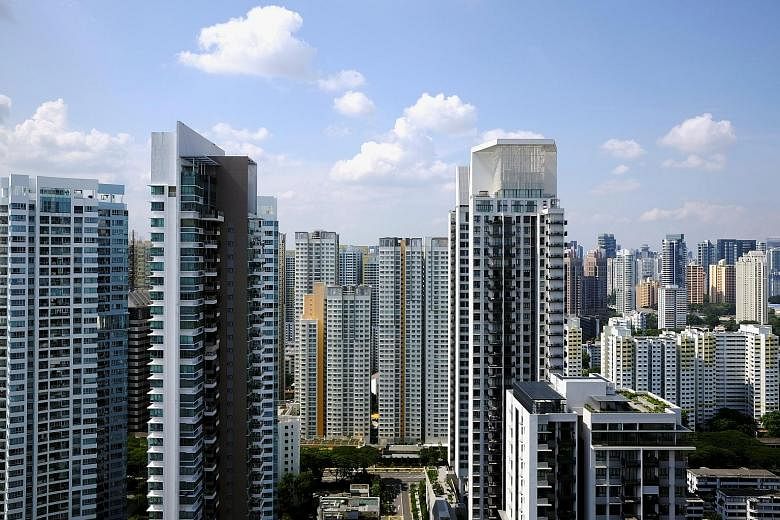Property cooling measures announced in July have dampened sentiment in the real estate market, according to a new report.
The quarterly Real Estate Sentiment Index (Resi) fell sharply to 4 in the third quarter from 6.6 in the second, a stark change following the July measures.
Resi is jointly developed by the Real Estate Developers' Association of Singapore (Redas) and the National University of Singapore's (NUS) Department of Real Estate, and surveys senior executives of Redas member firms.
It uses a "net balance percentage" to score key determinants of sentiment in the real estate market.
Survey respondents said the "unexpected and surprising" July 6 cooling measures were "extremely disruptive" and have dampened sentiment.
-
90.2%
-
Percentage of survey respondents who felt the collective-sale market would be "seriously affected" by the ABSD hike over the next six months.
They also said developers were "so heavily penalised with hefty ABSD" that it made land-banking decisions "challenging and risky", a trend seen in the growing numbers of unsuccessful collective-sale transactions in recent months.
ABSD refers to the additional buyer's stamp duty, whose rates were raised as part of the July cooling measures.
The survey also noted that 90.2 per cent of respondents felt the collective-sale market would be "seriously affected" by the ABSD hike over the next six months.
Residential property in the core central region is relatively more sensitive to the ABSD policy than that in the outside core region, the survey said.
New non-landed residential property launches in the central region - comprising districts 9, 10 and 11, the downtown core and Sentosa - will likely face more resistance with the new ABSD.
Survey respondents cited rising inflation and interest rates, a slowdown or decline in the global economy, and tightening of financing or liquidity in debt markets as the top three potential risks that could hurt market sentiment in the next six months. External economic shocks, a slowdown in local economic growth and the latest cooling measures were also cited as risks.
"The uncertainties in the external economic conditions, coupled with the high transaction costs imposed by the new ABSD policies, may have a double whammy impact on the local residential markets," said NUS Associate Professor Sing Tien Foo.
"The sharp declines in the (third quarter of) 2018 reflect the bleak outlooks of the property players, especially for the residential markets in the next six to 12 months."

